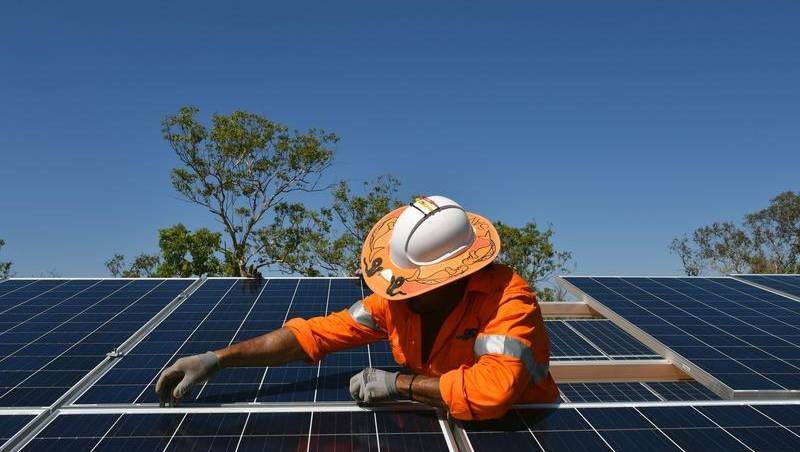A national energy plan to create hundreds of thousands of jobs across the economy has been commissioned by the sparkies who would roll it out.
More than 450,000 jobs could be created over the coming decades, according to a blueprint by independent think tank Per Capita for the Electrical Trades Union.
ETU Acting National Secretary Michael Wright said a carefully co-ordinated transition to renewable energy would inject working Australians and their communities into the industries of the future.
“Without a national plan, it is currently a race against time for workers,” Mr Wright said.
Since 2010, 12 of Australia’s 34 coal-fired power plants have closed, and the shock announcement that the nation’s largest, Eraring, will be retired seven years early suggests more will shut down ahead of schedule, he said.
Per Capita found the shuttering of Eraring alone threatens the livelihoods of 500 workers on NSW’s Central Coast, with more than 7000 affected by these “rapid, poorly planned closures”.
Additional pressure is being felt by heavy emitters, such as leading aluminium producer Alcoa who last year said they were at risk of closing their smelter in Portland, Victoria.
The report said the role of federal government in planning for and managing the new economy must be reclaimed, including a mandatory carbon price.
Per Capita said there is no evidence a mandatory carbon price would damage the economy, particularly when the alternative is lost assets and fallout from more extreme weather events.
Federal industry department modelling for net zero assumes a $24 a tonne carbon price, which the coalition government stresses is voluntary.
Per Capita senior fellow Shirley Jackson, who co-authored the plan with Sam Ibrahim, said the report shows close to half a million jobs could be created by 2050 across a range of industries.
“Training and re-skilling would be prioritised and local communities would have a say in determining their future,” Mr Jackson said.
BLUEPRINT RECOMMENDATIONS:
* Create sector-specific plans with input from government, industry and unions on wind turbines, photovoltaics, lithium batteries, electric vehicles and green steel.
* Convene an Energy Summit to negotiate and reach agreement on the post-carbon economy.
* Establish a Clean Transport Commission to co-ordinate demand, manufacturing and procurement, including electric buses.
* Establish a Federal Transformation Authority to oversee planning for each state and territory, with a focus on opportunities for local workers.
* Firm commitments on emissions cuts at 2025, 2030 and 2040 to achieve net zero by 2050.

